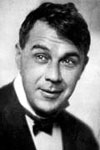Kosztolányi Dezső: Anna Édes (Édes Anna Angol nyelven)
Édes Anna (Magyar)
Vasárnap Vizyné templomba ment, Vizy se volt már otthon. Az úrfi későn kelt. Nadrágjait rendezgette a szekrény előtt.
|
Anna Édes (Angol)On Sunday Mrs Vizy went to church. Mr Vizy too left early. The young master woke late. He was arranging his trousers before the wardrobe. Anna opened the windows so that she could start the cleaning. As she passed the wardrobe she gathered her courage and spoke to him.
‘Excuse me, master…’ ‘What is it?’ ‘Please forgive me…’ She burst into tears. She cried silently but in such distress her entire body shook. Jancsi stared at her. For a while he was completely lost for words. Is it possible he could have loved her, that he had been in love with this? She wiped her tears with her knuckles, she snuffled and her nose was as red as a drunken peasant’s. She had tied a long scarf around her waist. It brought a damp autumnal smell into the house much as a stray dog might have done. The draught was whistling through the open window as Anna’s tears rained down and kept on falling. She was muttering too, though he could only make out one word: ‘…shame … shame …’ ‘That’s impossible,’ said Jancsi. ‘Quite impossible. Out of the question.’ ‘But it’s true …’ ‘Stop crying. Do please stop crying,’ he begged her and stopped his ears to shut out her weeping as he once had her laughter. ‘If only you’d stop crying…’ ‘Oh, master…’ ‘Be quiet. This is no way to talk. Will you stop it! Well. So. The first thing is: it is by no means certain. Not at all. One must wait.’ He shuddered with disgust that he had to discuss matters like this with her in such horrible intimacy. ‘Whatever the case one must wait,’ he repeated and shrugged his shoulders. He only half believed it. She might be trying to blackmail him. Nevertheless he took care to ask her each morning from then on. Anna just shook her head. In the Club des Parisiens Jancsi buttonholed Elekes on the subject of a certain actress. ‘Look, old man,’ he began, leaning back in his armchair, ‘I’m in trouble, my friend, in deep trouble.’ ‘Is that all?’ replied Elekes and leant forward to whisper in his ear. ‘Are you sure?’ ‘Certain. We’ve used the method time and again.’ That night Jancsi stood by Anna’s bed. ‘A footbath. In plenty of hot water, as hot as you can bear it.’ The girl made the water so hot she could have plucked and boiled a chicken in it. She dangled her feet in the bowl and hissed with pain. ‘Well?’ asked Jancsi after a couple of days. Again, she just shook her head. ‘Incredible,’ he mumbled. ‘Truly incredible,’ and he snapped his fingers. He was in a real pickle, up to his neck. Just his luck! What a repulsive business, and what a scandal there would be next spring. Elekes suggested a gynaecologist, someone who was particularly sympathetic to the arts, especially actresses. Jancsi thought it convenient to arrange an appointment for his actress. His pal introduced him to a sympathetic chemist who made his living currently by smuggling silk in from Vienna and smuggling Hungarian arms out to Czechoslovakia. He gave Jancsi something. Jancsi waited for an opportune moment when his aunt had popped out into the corridor. ‘Here it is,’ he whispered to her urgently. ‘What is it?’ ‘Medicine.’ He slipped four small packages of powder into her hand. ‘Hide it away,’ he insisted when she started examining the little paper sachets. ‘Then take them.’ ‘Should I swallow these?’ ‘You don’t understand. It’s in the packets. You open them, dissolve the powder in water and drink it.’ ‘Now?’ ‘Before you go to sleep. By morning it will have done the trick. But let nobody see it. Because it’s illegal. If they found out they could put you in prison for it.’ ‘But then perhaps I shouldn’t take it, master?’ ‘Nonsense. Of course you should. But say nothing to anyone. Be careful.’ Anna did as she was instructed. When the flat grew dark she opened the packets. They contained a white powder like fine flour. She sniffed at it. It had no smell. She emptied the contents of all four packets into a glass of water. But she was too scared to drink it in the kitchen. She went into the toilet. Then she shut her eyes and drained the glass in one gulp. Dear Jesus, how bitter it was, O Mother of God, blessed Mother of God, how bitter. She had never tasted anything so bitter in her life. And it only reached its peak of bitterness once she had gone into her room and lain down on the bed. Its stinking bitterness seared the roof of her mouth and burned her throat. Only poison could be so bitter. She clapped her hand to her mouth and fingered her tongue hoping to touch the bitterness, amazed that anything could be so bitter. Each individual hair on her head was suffused with it. She slept till one or maybe later. She opened her eyes wide and stared at the window. The bright orange light on the wall opposite was leaping about with such energy she was lost in wonder. Were they ringing bells somewhere? She heard the boom of distant bells which grew silent then, with a deep grumbling, approached ever nearer. She rose to see why they should be ringing bells at this hour. Then someone came in, a vast figure, she had never seen someone so huge. How could they come in when the door was shut. The figure stood by her bed like a horse. We-e-ell, what’s up with you-u-u? You can stay where you are. Father, dear father. Just look. His head was a piece of ham. He’ll never harm her. He’ll just sit in the chair, like the broom. He’s mad. He’ll go away. I ought to sweep up anyway. The place is crawling with filth. I’ll pull that drawer open, and - would you believe it? - it’s full of millet. Oh your ladyship, how you startled me. I thought you were going to fall off the wall. What is she doing here? Go to hell, idiot. I’ll burn the omelette, the water will boil away in the pan. Let go of me. ‘What’s the matter?’ asked Mrs Vizy, bending over her. ‘Are you ill?’ Anna was so fast asleep she could hardly hear her breathe. ‘Anna,’ she shook her. ‘Anna. Can you hear me?’ The girl turned over. ‘She is ill,’ thought Mrs Vizy. She touched her brow. It was quite cold. Her hands and her feet were like ice. ‘Is she going to die on us?’ she wondered. She ran up for the doctor. Moviszter was out on a call and would only be back in time for surgery. In the meantime she offered the girl tea with rum and exhorted her to drink it, it would warm her up. Anna shifted and pointed at something. She asked her to turn on the light. ‘Why?’ wondered Mrs Vizy. ‘It’s morning. Half-past eight,’ she said, frightened. Anna waved her arms round in terror then squeezed her hands to her eyes. She couldn’t see a thing. The whole world had gone black: she was blind. Once again she fell asleep and did not wake until the masters came home and started on their meal. Mrs Vizy was just complaining that this was all she wanted, a sick girl on her hands, when Anna appeared in the dining room with the tray. ‘Are you feeling better?’ Mrs Vizy enquired. Anna could see everything now but she couldn’t hear. She could only see their mouths moving. ‘She must have caught a chill,’ said Vizy. ‘Of course,’ Jancsi agreed. ‘It’s a chill.’ ‘All the same, I’ll call the doctor down,’ Mrs Vizy fretted. ‘Just as you think,’ said Vizy, ‘but you know what these peasant girls are.’ ‘Yes,’ added Jancsi. ‘And in any case she is better.’ By evening she was feeling so much better that she herself asked them not to bother the doctor. For days her vision was impaired and her ears rang. Once she couldn’t see the ice box, once she dropped a silver spoon and didn’t hear it fall. She also felt a great pressure on her heart, just as she did that night: she felt so small and everything around her so large. ‘Perhaps you have upset your stomach,’ Mrs Vizy quizzed her. ‘Try to remember. What did you eat? You must have eaten too much of something you like.’ One day when no one was about Jancsi skipped over to her and asked if she was all right. ‘Yes.’ ‘You see. I told you.’ ‘It was just that it was so bitter,’ Anna replied with a faint sickly smile. ‘So terribly bitter.’ ‘Bitter?’ repeated the young master. ‘All medicines are bitter. The important thing is to get them over and done with. Well, goodbye.’ But he had had enough of this affair, and of the Vizys too who were always nagging him about his late nights. He took the issue of his accommodation into his own hands. He showed the minister’s calling card at the housing bureau and asked to move into the room in Marvany utca that he had been promised a fortnight ago. Within forty-eight hours the room was his. It was on the third floor, not particularly big, but it did look out on to the street and - most importantly - had its own entrance. That very day he packed up his belongings, kissed Aunt Angela and Uncle Kornel, and didn’t even return for the evening. Jancsi sat in his new room in his beaver-fur coat. He was chatting to Elekes. There was a ring at the door. Anna brought his belongings. She put them down. ‘Thank you, Anna,’ said the young master and pressed a hundred kroner note into her hand. He escorted her to the door and told her to wait for a second. He reached into his pocket, took something from it and gave it to her. ‘This is for you too.’ Anna stopped in the street to see what it was. In the paper bag were some roast chestnuts, rather small, burnt and blackened, but still warm Hungarian chestnuts. Now she saw that the young master was no longer angry with her.
|




